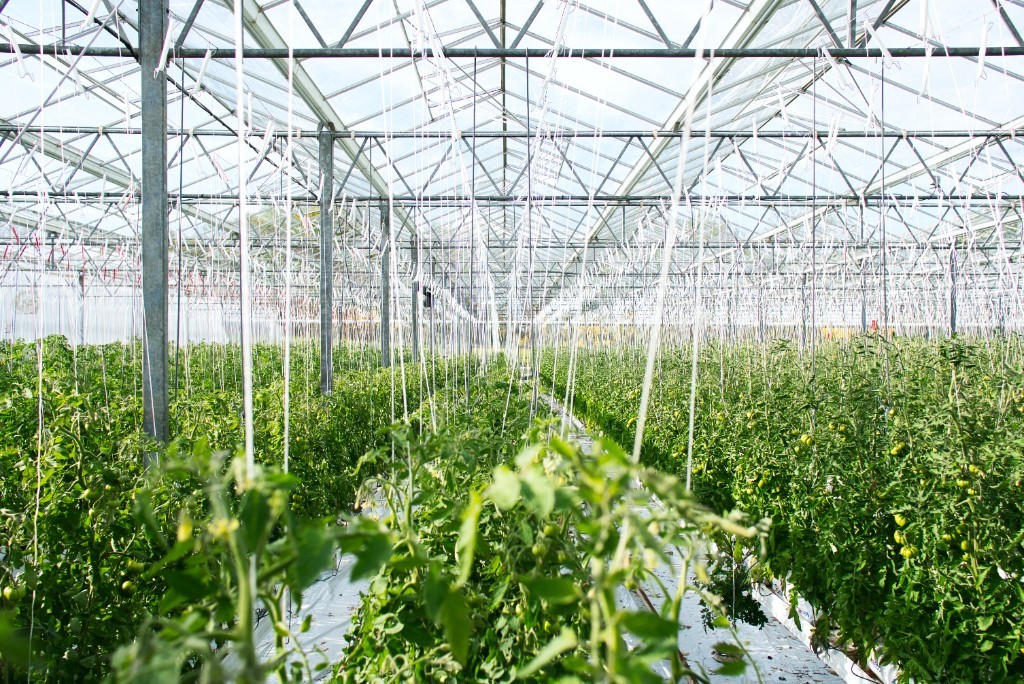In recent years, there has been a significant advancement in the field of Artificial Intelligence (AI) and Augmented Reality (AR). These technologies have become increasingly popular and have the potential to enhance virtual experiences in various fields such as gaming, education, healthcare, and...
Agriculture Gets Smarter with AI – Data-Driven Farming to Feed the World

Data-Driven Farming Revolutionizes Global Food Production
In a world where population growth and climate change pose significant challenges to food production, the agricultural industry is turning to artificial intelligence (AI) to revolutionize farming practices. By harnessing the power of data, farmers are able to make smarter decisions and optimize their operations, resulting in increased yields and more sustainable practices.
Imagine a future where every seed, every drop of water, and every ray of sunlight is utilized to its maximum potential. This is the promise of data-driven farming.
Through AI-powered technologies, such as machine learning and predictive analytics, farmers can now collect and analyze vast amounts of data to gain valuable insights into their crops, soil conditions, weather patterns, and more. These insights enable them to optimize irrigation schedules, identify nutrient deficiencies, and detect diseases early on, leading to higher crop yields and reduced use of pesticides and fertilizers.
With AI, farmers are no longer relying solely on traditional farming methods passed down through generations. They are now equipped with advanced tools that allow them to make informed decisions based on real-time data.
The benefits of data-driven farming go beyond individual farms. By sharing data and collaborating with other farmers and researchers, the agricultural community can collectively work towards sustainable solutions and tackle global challenges. AI has the potential to transform the entire food production system, ensuring a more reliable and efficient supply of food for a growing population.
As we embrace AI in agriculture, we are ushering in a new era of farming – one that is driven by data, innovation, and sustainability.
Join the data-driven farming revolution and be part of the future of agriculture.
Agriculture Gets Smarter with AI
In today's rapidly evolving world, technology is revolutionizing every industry, and agriculture is no exception. With the advent of Artificial Intelligence (AI), farming has become smarter and more efficient than ever before. The integration of AI into agricultural practices has led to a data-driven farming revolution that is transforming global food production.
AI-powered systems are helping farmers make informed decisions based on real-time data analysis. By collecting and analyzing data from various sources such as weather patterns, soil quality, crop health, and market trends, AI algorithms can provide valuable insights and recommendations for optimizing farming operations.
One of the key benefits of AI in agriculture is precision farming. By using AI-powered sensors and drones, farmers can monitor their fields with great precision. These devices can detect variations in soil moisture, nutrient levels, and crop health, allowing farmers to apply fertilizers, pesticides, and water only where and when needed. This not only reduces waste but also maximizes crop yields and minimizes environmental impact.
Another area where AI is making a significant impact is in crop disease detection and prevention. AI algorithms can analyze images of crops and identify signs of diseases or pests. This early detection enables farmers to take timely action, preventing the spread of diseases and minimizing crop losses. Furthermore, AI can recommend the most effective treatments or preventive measures based on historical data and current conditions.
In addition to precision farming and disease detection, AI is also transforming the supply chain and logistics of the agricultural industry. AI-powered systems can optimize transportation routes, predict demand, and manage inventory, ensuring that fresh produce reaches the market in a timely manner. This reduces food waste and improves the overall efficiency of the agricultural supply chain.
As technology continues to advance, there is no doubt that AI will play an increasingly important role in agriculture. With its ability to analyze vast amounts of data, AI has the potential to revolutionize farming practices and address the challenges of feeding a growing global population. By harnessing the power of AI, agriculture is getting smarter, more sustainable, and more productive, paving the way for a brighter future for global food production.

Data-Driven Farming Revolutionizes Global Food Production
With the advent of technology, agriculture has undergone a significant transformation. Data-driven farming has emerged as a game-changer, revolutionizing global food production. By harnessing the power of artificial intelligence (AI) and advanced analytics, farmers can make informed decisions that optimize crop yield, reduce costs, and minimize environmental impact.
One of the key benefits of data-driven farming is its ability to provide real-time insights. Sensors placed in the fields collect data on soil moisture, temperature, and nutrient levels, allowing farmers to monitor crop health and make timely interventions. This proactive approach enables farmers to prevent diseases, optimize irrigation, and ensure the optimal use of fertilizers.
AI algorithms analyze vast amounts of data collected from various sources, including weather patterns, satellite imagery, and historical data. By leveraging this information, farmers gain valuable insights into crop performance, pest infestations, and soil quality. Armed with this knowledge, they can adjust their farming practices to maximize productivity and reduce waste.
Furthermore, data-driven farming facilitates precision agriculture. Through the use of GPS technology, farmers can create digital maps of their fields, marking areas that require specific attention. This targeted approach minimizes the use of resources, such as water and pesticides, and reduces the environmental impact of agriculture.
Additionally, data-driven farming enables farmers to optimize their supply chain. By analyzing market trends and consumer demand, farmers can make informed decisions regarding crop selection, timing of planting, and harvesting. This ensures that the right crops are grown at the right time, reducing food waste and increasing profitability.
In conclusion, data-driven farming is revolutionizing global food production. By harnessing the power of AI and advanced analytics, farmers can make data-backed decisions that optimize crop yield, reduce costs, and minimize environmental impact. This transformative approach to agriculture paves the way for a more sustainable and efficient future of food production.



